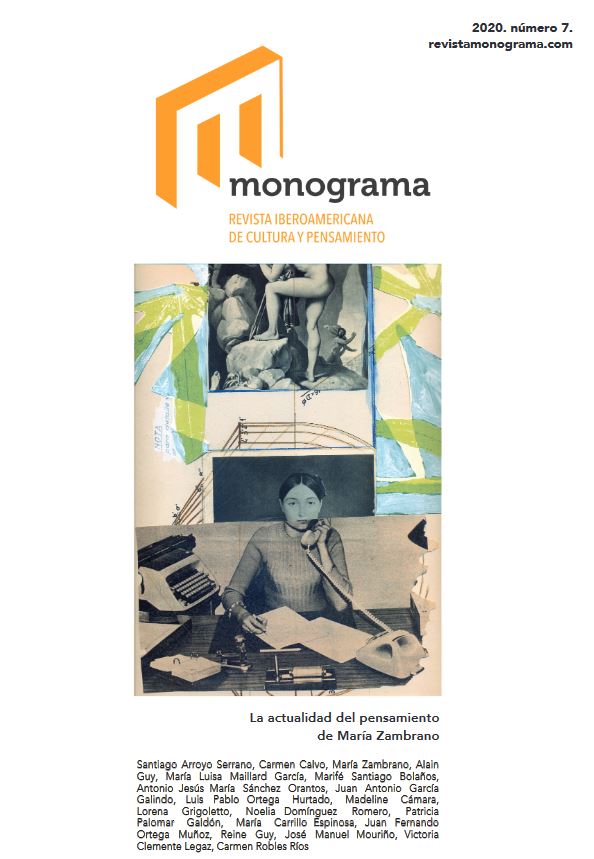De numerae animi. Orphic and Pythagorean Footprints in Vasconcelos and Zambrano
DOI:
https://doi.org/10.36008/monograma.202.07.1328Keywords:
Orphism, Phytagorism, Rhythm, Melody, Harmony, HispanismAbstract
In the perspective of an unprecedented dialogue between the Mexican philosopher José Vasconcelos and the Spanish philosopher María Zambrano, this article seeks to trace, by exploring theoretical issues and implications, the terms and modalities of development of a curious renaissance of orphism and pythagorism in the Spanish-speaking philosophical context between the 19th and 20th centuries. In fact, from a historical-philosophical research based on the context and theoretical assumptions of this renaissance, which identifies in the link between modernism and pythagorism an essential factor and involves important cultural and metaphilosophical issues, the work continues with a more markedly theoretical and semiotic analysis on the specific themes of the two authors, both convinced of the «pythagorean» or «orphic-pythagorean» character of their own reflection, to finally attempt a comparison. It is in this perspective that concepts of musical derivation such as «rhythm», «melody» and «harmony» mark the fundamental stages and modus operandi of consciousness, redefining ethically and aesthetically its relationship with the world and its political of these terms and in the reception of the «orphic» and «pythagorean» tradition imply a political incompatibility between the two thinkers and opposing positions in particular with regard to the relationship between man and the divine.
value. However, the important differences in the conception
Downloads
References
CHACEL, R. «Don Ramón como maestro». En id., Obra Completa (1989-1993) (eds. A. Piedra, C. Pérez Chacel, A. Rodríguez Fischer, F. Pardo), vol. III. Valladolid: Centro de Creación y estudios Jorge Guillén, Diputación Provincial de Valladolid, pp. 447-457.
GULLÓN, R. (1974). «Pitagorismo y modernismo». En H. Castillo (ed.), Estudios críticos sobre el modernismo. Madrid: Gredos, 1974, pp. 358-384.
HURTADO PÉREZ, G. (2016). La revolución creadora. Antonio Caso y José Vasconcelos en la Revolución mexicana. México: UNAM, pp. 79-80.
SHULMAN, A. I. (1972). «Modernismo, Revolución y Pitagorismo en José Martí», Casa de Las Américas (La Habana), 2, (45), julio-agosto, 1972.
VASCONCELOS, J. (2000). Ulises criollo (edición crítica a cargo de C. Fell). París: ALLCAX.
VASCONCELOS, J. (1959). «Don Gabino Barreda y las ideas contemporáneas». En Obras Completas., tomo I, cit., pp. 37-56.
VASCONCELOS, J. (1959). «Estética» [1935], en Obras completas, tomo III. México: Libreros Mexicanos Unidos, p. 1111.
VASCONCELOS, J. (1959). «Historia del pensamiento filosófico». En Obras Completas, tomo IV, cit., 93.
VASCONCELOS, J. (1971). Monismo estético. En id., Obras Completas, tomo IV, pp. 9-80.
VASCONCELOS, J. (1959). «Filosofía y Sabiduría», en Lógica orgánica. En id., Obras completas, tomo IV, p. 496.
VASCONCELOS, J. (1957). «Don Gabino Barreda y las ideas contemporáneas». En Obras Completas, tomo I, pp. 37-56.
VASCONCELOS, J. (1921). Pitágoras. Una teoría del ritmo. La Habana: El Siglo xx, 1916; 2.ª ed.: México: Cultura, tomo 13, n.º 2.
SCHELER, M. (2005). Esencias y formas de la simpatía. Salamanca: Ediciones Sígueme.
ZAMBRANO, M. (2011). Delirio e destino (ed. R. Prezzo, tr. it. de R. Prezzo y S. Marcelli). Milán: Raffaello Cortina.
ZAMBRANO, M. (2008). «La condanna aristotelica dei pitagorici». En Id., L’uomo e il divino (tr. it. di G. Ferraro, introdución de V. Vitiello). Roma: Edizioni Lavoro.
ZAMBRANO, M. (2004). Il sogno creatore (ed. C. Marseguerra, tr. it. de Vittoria Martinetto). Milán: Bruno Mondadori, 2002; I sogni e il tempo (ed. L. Sessa y M. Sartore). Bolonia: Pendragon, 2004.
ZAMBRANO, M. (2003). Le parole del ritorno (ed. E. Laurenzi). Troina: Città aperta.
ZAMBRANO, M. (2000). Dell’Aurora (ed. E. Laurenzi). Génova: Marietti.
ZAMBRANO, M. (1955). El hombre y lo divino. México: Fondo de Cultura Económica.
ZAMBRANO, M. (1954). «Tres delirios: La condenación de Aristóteles», Orígenes, 35.
ZELLINI, P. (2011). «Proteo, il mare e i numeri». En id., Numero e Logos. Milán: Adelphi, pp. 13-37.
Downloads
Published
How to Cite
Issue
Section
License
Copyright (c) 2020 Monograma. Revista Iberoamericana de Cultura y Pensamiento

This work is licensed under a Creative Commons Attribution-NonCommercial-NoDerivatives 4.0 International License.
Esta obra está bajo una licencia de Creative Commons Reconocimiento-NoComercial-SinObraDerivada 4.0 Internacional






